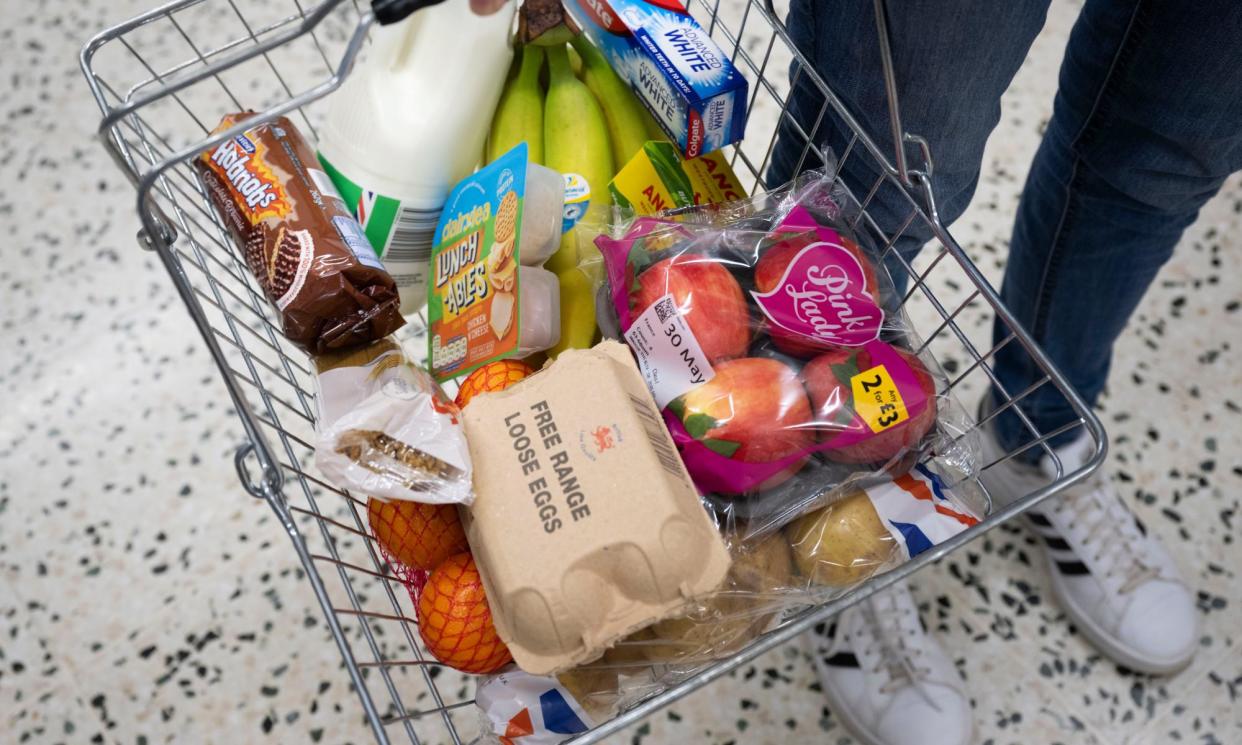Back-to-school shopping drives up grocery spending in Great Britain

Households stocking up on lunchbox essentials helped drive an increase in grocery spending last month, while supermarket inflation in Great Britain dipped.
Grocery price inflation fell to 1.7% in the four weeks to 1 September from 1.8% last month, according to the retail analyst Kantar, but nearly 60% of households were worried about the rising cost of their shopping.
The back-to-school period included sales of fromage frais, cereal and fruit bars rising 14% over the last week of August, compared with a year ago, while sales of chocolate biscuit bars jumped by 12%.
Related: Equal pay hearing affecting thousands of Asda shop workers begins
“The demand has picked up once again for lunchbox favourites as summer draws to a close and parents stock up ahead of the new school year,” said Fraser McKevitt, the head of retail and consumer insight at Kantar.
However, he said that, more broadly, shoppers’ financial confidence had not risen. “Memories of the last two years remain strong, with nearly 60% of shoppers still very or extremely concerned about rising grocery prices. This is their second biggest financial worry, only behind home energy bills,” he added.
Retailers are offering more deals to ease the burden, with the proportion of sales on promotion rising year on year for the 16th month in a row. More than half of all grocery trips include shoppers using some kind of deal, and this proportion rises as their spend gets bigger, McKevitt said.
Prices are rising fastest for vitamins, minerals and other nutrition supplements, as well as chilled fruit juices and chocolate confectionery, and are falling fastest for toilet tissue, dog food and bottled colas.
Grocery sales rose by 3% in value over the four-week period compared with a year earlier, down from 3.8% last month.
Ocado was the fastest-growing supermarket for a seventh consecutive month, with sales up 12.9% year on year. Asda was the worst performer, with sales down 5.6%. The Co-op was the only other big grocer to report a sales drop, of 0.7%.
Aldi, the German-owned budget retailer, said on Monday the slowdown was partly because big chains including Tesco and Sainsbury’s have won back customers by promising to match Aldi on key items.
The UK’s biggest retailer, Tesco, increased sales by 5.3% while Sainsbury’s recorded a 5.7% rise.
Morrisons was ahead by 2.7% while Waitrose sales rose by 4%. At the discounters, Lidl grew sales by 9.1%, while Aldi increased by only 1.3%.
Retailers are waiting to see how the chancellor’s autumn budget on 30 October could affect household incomings and outgoings.


